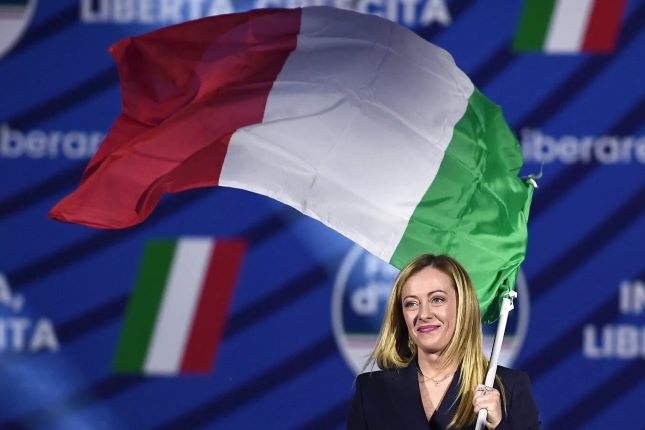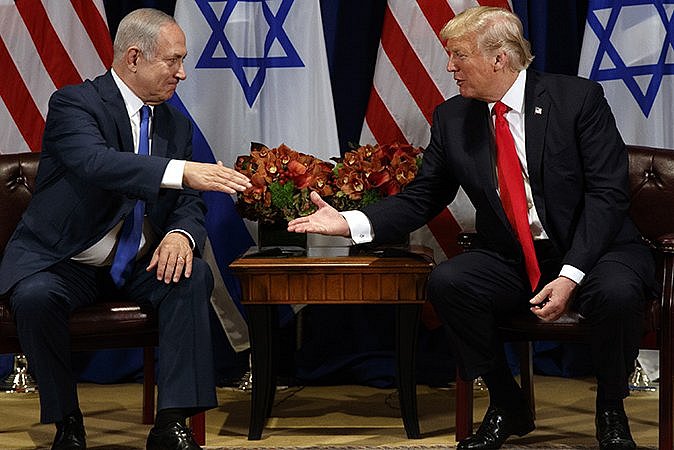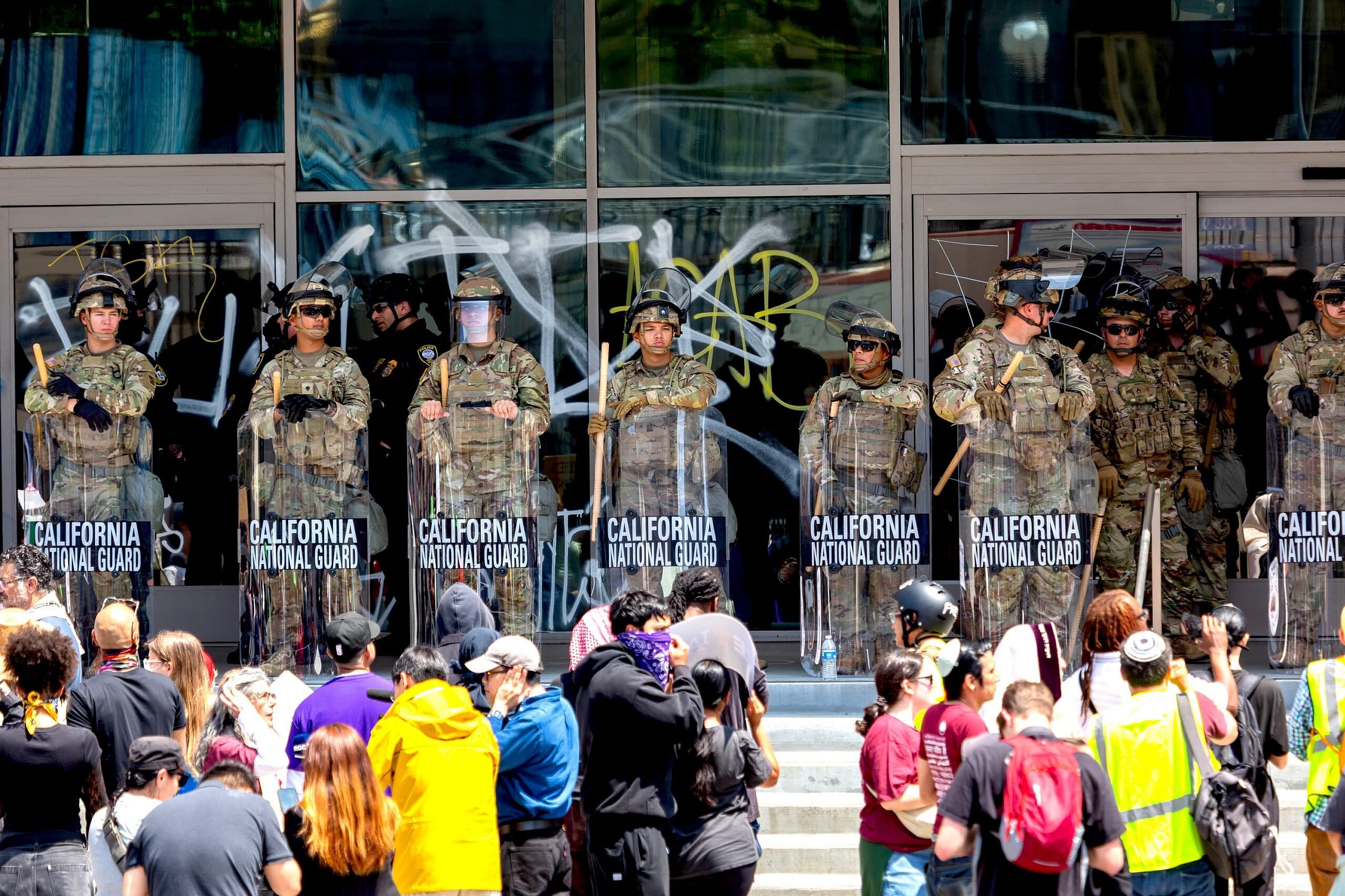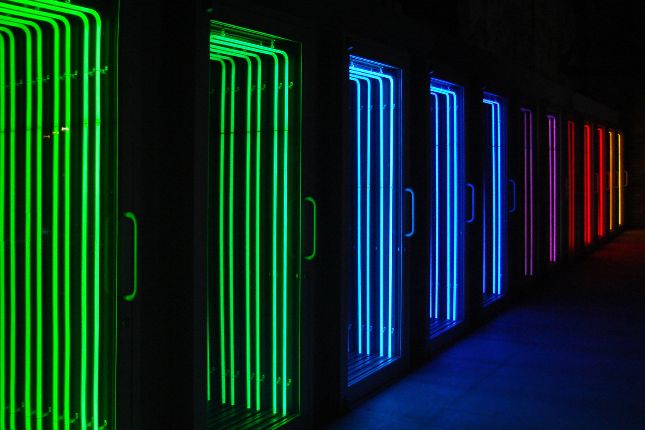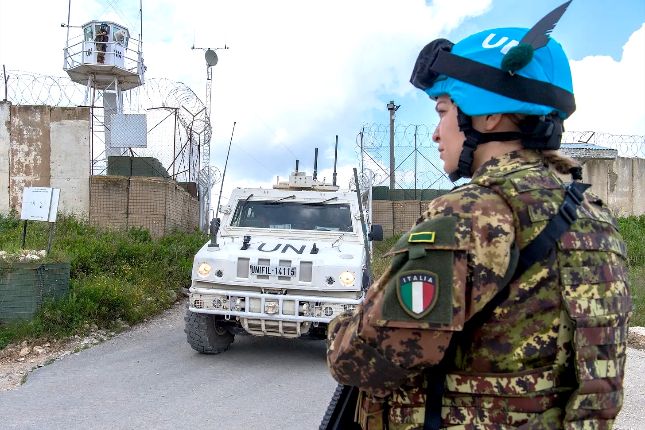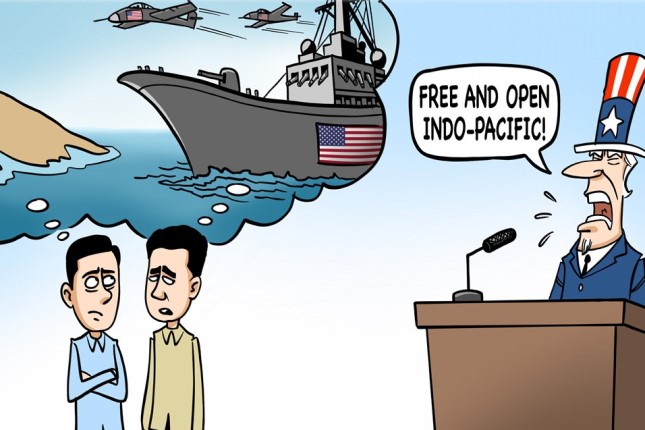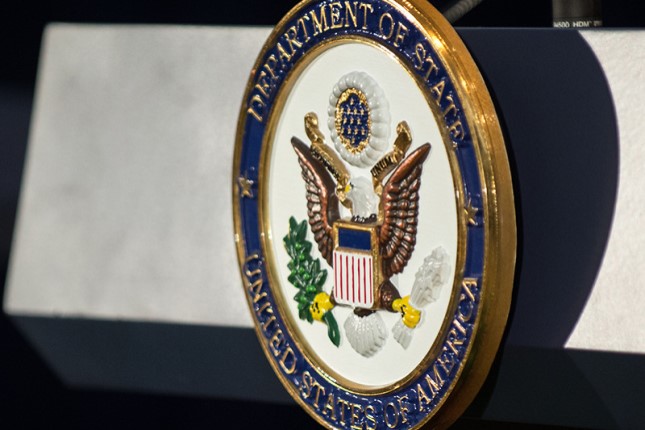On Sunday, September 25, Italy will vote in the national election. The coalition of right-wing parties – Matteo Salvini's Lega (League), Silvio Berlusconi's Forza Italia, and Fratelli d'Italia (Brothers of Italy) – is predicted to win, led by Giorgia Meloni, the campaign's protagonist. If the coalition wins, Meloni, at her 45, will become the first female prime minister in Italian history. This means her political programme will shape the country's policy over the coming years.
On average, an Italian government holds power for 20 months. Still, Meloni's right-wing coalition has every chance of running for much longer because, judging by the ratings – over 50% as the polls show – ordinary Italians seem to like what the parties propose.
According to opinion polls, there are three major woes Italian voters are currently most concerned about: the drastic rise in energy prices, environmental issues, and the high crime rate stemming from the influx of migrants into the country. Those who have attended the rallies of the future prime minister, as people call her, say that she suggests simple and clear solutions to all these issues.
Some have accused Meloni of populism because of this. But is it a manifestation of populism, for example, to promise to reduce the tax burden on businesses to hire more employees? Or reduce social charges which, in the context of the energy crisis, are becoming a severe burden on small and medium-sized enterprises? Or protect Italian businesses from being bought out by multinationals and moving jobs to Asia? It seems more like a rather pragmatic approach.
Meloni is also expected to cut electricity and heat bills. She will likely act like the new British prime minister, Liz Truss, by setting a price ceiling on utility rates.
Even Meloni's opponents admit that she believes in national interests and is generally a political realist. Regarding migrants, the right-wing bloc is known for its tough stance. The uncontrolled influx of refugees from Africa and the Middle East has aggravated the situation with drug trafficking and increased prostitution.
Giorgia Meloni is much more radical in the fight against illegal immigration than Matteo Salvini. While her counterpart, when deputy prime minister in the Conte government, never allowed a ship with immigrants on board to dock on Italian shores in 2019, Meloni demanded it should be sunk and the crew arrested. Brothers of Italy promotes the idea of a naval blockade of the northern coasts of Africa, although experts argue if this could actually be effective.
In this radical approach to mass migration issues, Giorgia Meloni resembles another conservative European politician, Hungarian Prime Minister Viktor Orban, who promised to shoot immigrants at the border. Meanwhile, behind such harsh words, which appeal to right-wing voters, is quite a constructive position. She proclaims the willingness to accept immigrants after other EU members increase their quotas. That is, both Meloni and Orban stand for European solidarity on a fair basis.

Source: Hungary Today
Viktor Orban and Giorgia Meloni have much in common, not just because they are nationally oriented politicians with an anti-globalisation bias. If we look closely at Meloni's views and values, her resemblance to Orban becomes even stronger. She describes herself: "I am Giorgia, I am a woman, I am a mother, I am Italian, I am a Christian!" And this is her formula for success.
By stressing that she is Italian, Meloni means that although she supports Italy being in both NATO and the European Union, she does not agree to give more and more power to the supranational bodies of organisations where unelected bureaucrats sit. National governments should have more control.
She is a Christian, even a devout Catholic, who would undoubtedly like the ultra-conservative views of Pius XIII from Paolo Sorrentino's The Young Pope. Meloni and her party traditionally look at family, parenting, and gender issues. LGBT activists at her rallies shout insults and sometimes burst onto the stage, trying to disrupt the speeches.
Meanwhile, Brothers of Italy, following the country's constitution, are not ready to call same-sex unions a "family" but are discussing the legal recognition of such partnerships under another term. At the same time, they are irreconcilably opposed to the so-called progressive agenda: promoting LGBT values among children, abortion, surrogacy, and same-sex adoption. To make it clear to the voter, they call it the "LGBT lobby" and promise to protect the education system from it while adapting it to modern needs.
Meloni is so popular that by using simply the name "Giorgia", Italians mean her. And it goes without saying, Giorgia has deserved it. She is an extraordinary person with an inspiring biography. Born in a poor neighbourhood of Rome and fatherless from infancy, with no connections, she has made a dizzying career due to her participation in the right-wing Italian youth social movement. Even at a relatively young age, Meloni was able to lead the demonstrators with a megaphone in her hands. This is the skill that helps her now when gay activists burst onto the scene.
Giorgia became a minister in the Berlusconi government at 31 and co-founded Brothers of Italy. After many general and regional election setbacks, this political force suddenly became Italy's main opposition party. Mainly due to Meloni's not entering a coalition with any of the last three governments, she managed to avoid criticism for their miscalculations. She has always been against the authorities' decisions.
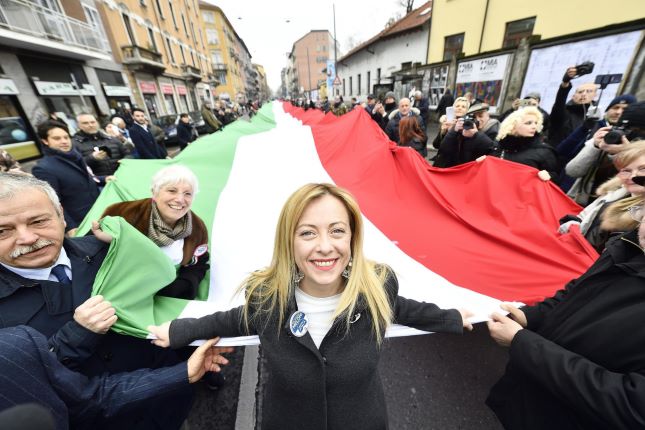
Source: La Regione
The path of Giorgia Meloni to the chair of the head of government shows how a modern politician has to build a personal image and position her party. Angela Merkel has been called Mutti (Eng. mummy) in Germany. Similarly, as a woman and mother, Giorgia Meloni defines herself. When she ran for mayor of Rome while pregnant, Meloni's former patron Silvio Berlusconi advised her to raise her child rather than get involved in politics. It was a somewhat reckless remark for Italy, whose cult of the family did not endear her to the voters. In that election, Meloni came third with 21% of the vote. However, the candidate backed by Berlusconi won not more than 4%.
With the birth of her daughter, Giorgia Meloni began actively posting photos with her and her cat on social media. Children and cats are a win-win for online popularity. Especially among middle-aged women, to whom she says: "If we are good enough to be trusted with a family and children, we can succeed in politics." That success for Meloni herself is almost guaranteed.

Source: Instagram giorgiameloni
A woman prime minister in the 21st century and in Europe is no surprise, but, interestingly, the post will be held by an opponent of feminism and quotas for women.
Her centre-right coalition leads polls with around 50% of the vote, giving it an absolute majority in both the Chamber of Deputies and the Senate. Brothers of Italy have the most votes – around 20%.
Sunday's election should end Italy's frantic search for political alternatives. The republic seems tired of mainstream parties. Brothers of Italy, despite all the opponents' accusations, might be a decent governing force.
Main photo: Matteo Gribaudi/Imago
